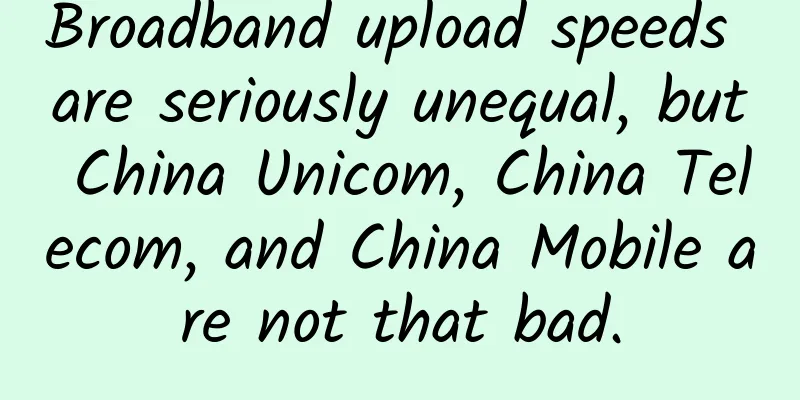What is number portability? What are the benefits? Is it necessary to port your number?

|
These days, the topic of "number portability" has once again sparked heated discussion. I feel a kind of "familiar strangeness" about this topic. I say familiar because this topic has indeed been hotly debated many years ago and was once one of my personal needs; and I say strange because I have almost forgotten the word. As early as November 22, 2010, the Ministry of Industry and Information Technology launched the pilot work of number portability in Hainan and Tianjin. Nearly four years later, on September 20, 2014, the Ministry of Industry and Information Technology launched the second batch of number portability pilot work in Jiangxi, Hubei and Yunnan provinces. Judging from many reports on the Internet, the cause was that a Hubei user wanted to transfer his number to another network, but found that he was unable to do so because he participated in a phone bill activity organized by the operator. Actually, I can understand this problem. Because according to the regulations of the Ministry of Industry and Information Technology, "the porting party shall not refuse to handle number portability for qualified applicants in any way." Please note the words "qualified" here. Obviously, the policy of the Ministry of Industry and Information Technology has left a way out for the operators from the beginning. In fact, in the early years, due to the different signal coverage of different operators and the different tariff preferences of each user, there was a user-side demand for number portability; at the national level, the reason for promoting number portability is more to balance the development of the three operators and avoid a situation where one operator dominates the market. However, with the development of mobile Internet in recent years and the popularity of dual-SIM dual-standby mobile phones, the actual value of number portability has been greatly reduced. If users are not satisfied with a certain operator, they can switch that card to a low-end package as a calling card and apply for a new card with the package they like. There are three advantages to doing this: one is that you can use your favorite package; the other is that your original number must have been bound to various apps that require real-name registration, such as banks and WeChat, so this can avoid the trouble of changing numbers to the greatest extent; as for the third, fewer people know the new number, which can reduce various harassment. Once number portability is promoted on a large scale, the difficulties it faces include not only the loss of users and reduced revenue that operators are not happy to see, but also some technical problems. For example, how should the fees between the three operators be settled? Another example is that the SMS service codes of the three operators are different. After the user's number portability is completed, how can the SMS service provider identify it? Of course, there are ways to completely solve this problem. For example, similar to the problem of being unable to register an account with the 170 number segment, each operator can build a public number resource pool to share information. But who will bear the cost of such an investment? How to allocate it? At least in my opinion, instead of spending money on number portability, operators should spend more on adding preferential packages and improving base station layout (it is true that after the establishment of tower companies, operators do not need to be responsible for site selection and construction, but renting towers still costs money, and China Unicom and China Telecom, which have fewer towers, have to spend more money to rent towers). After all, the former is only the demand of a small number of users, while the latter is a problem that everyone will face. In fact, all operators have launched various preferential packages, and the advent of the 5G era will further promote the reduction of tariffs and the diversification of packages. Therefore, the value of number portability is actually very small compared to the social cost. In addition, companies such as Apple and Samsung are also pushing eSIM card technology, which allows users to switch operators freely, but is equivalent to short-circuiting the connection between operators and users, which will have a greater impact on operators, so its prospects seem even more uncertain. |
<<: WOT2018 Wang Xiaobo: The "Phoenix" model of cache management, you deserve it
>>: How can the CDN industry break through the era of negative gross profit?
Recommend
Experience the Serverless application programming model in cloud native scenarios
background Alibaba Cloud Serverless Kubernetes (A...
5G improves network determinism and supports digital transformation
[[326206]] Operators see enterprise and industria...
SmartHost: 40% off large hard drive VPS promotion, starting at $4.17/month, 8 data centers to choose from
SmartHost has launched a promotion for Storage VP...
5G messaging is now available for trial use. Will it replace WeChat?
Will 5G messaging, known as a "killer" ...
A brief introduction to intent-based networking (IBN)
In campus networks, there are many emerging trend...
Omdia Observation: TIP open core network plan is progressing slowly
According to the latest report from market resear...
spinservers US servers start at 33% off, 100M unlimited traffic servers start at $69/month, 10Gbps bandwidth servers start at $139/month
spinservers has sent the latest 2023 US Labor Day...
Ericsson research reveals: 5G network satisfaction drivers are changing dynamically
The report, titled "5G Value: Turning Perfor...
Edge computing and 5G drive post-pandemic economic recovery
[[429757]] Will edge computing and 5G drive a pos...
Who moved my broadband? A record of the discovery and solution process of HTTP hijacking
The hijacking we encounter in daily life is usual...
Weird! 5G networking using option 6?
[[341641]] This article is reprinted from the WeC...
UCloud's annual promotion flagship cloud host is as low as 10% off, Hong Kong/Shanghai/Guangzhou cloud host annual payment starts from 60 yuan
UCloud is a listed cloud computing company in Chi...
China Mobile actively promotes the accelerated implementation of 5G innovative applications
On September 20, China Mobile held the 5G+ Innova...
Prevent data encryption from hijacking the network: these four strategies you need to get
Encryption protects network traffic from hackers ...









